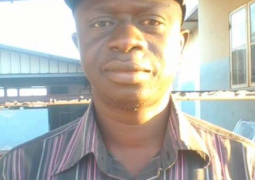The celebration, which took the form of speech presentations and a question and answer session, was held at the headquarters of the African Commission on Human and Peoples’ Rights in Bijilo.
Speaking on behalf of Nkosazana Dlamini-Zuma, chairperson of African Union Commission, Dr. Feyi Ogunade senior legal officer at the African Commission, said while the 50th anniversary of the OAU is a cause for the African Union (AU), the occasion has also prompted much sober reflection, and not a little cynicism, among diplomats during the celebration on the success or otherwise of Pan-Africanism in action.
‘We pay tribute to the pioneers of Pan-Africanism on the continent and in the Diaspora, and to the founders of the OAU for their wisdom and foresight to lay the foundations for the unity and solidarity of Africa,’ he stated.
He congratulated all African and Diaspora women, youth, workers, business, professionals, farmers, artists, intellectuals and civil society, for their commitment to the African cause, adding that Africa’s struggle against colonialism, oppression and apartheid experienced solidarity and international support from all freedom-loving people of the world.
According to him, the OAU/AU exhibited the spirit of internationalism as it championed the African cause and supported the struggles of oppressed people in other parts of the world.
‘We are, therefore, pleased to celebrate with all our friends from across the globe, and continue to reinforce our solidarity and cooperation,’ Dr Feyi said, adding further that “our 50th anniversary is a beacon of the spirit of internationalism, solidarity and cooperation”.
He noted that “today we re-dedicate ourselves to the total restoration of our dignity and independence and pledge to restore the dignity of the African child, man and woman.
‘As we start the journey of the next fifty years, we are clear about the task before us: to educate our populace, and ensure healthy bodies and minds; to modernize and expand Africa’s infrastructure and connect our peoples and countries; to grow our agriculture and agro-businesses so that we can feed ourselves and the world; to use our natural resources to industrialize and grow our shared prosperity; to invest in science, technology, research and innovation as enablers of rapid progress; and finally to empower women and youth as the drivers of Africa’s renaissance,’ he noted.
He added: “We, therefore, develop Agenda 2063; we call on all Africans and the Diaspora to contribute to this journey, so that Africa takes its destiny into its own hands, so that we become masters of our own fate and we are proud to be African.
‘In this great task, let us think like men and women of action; and act like men and women of thought,’ Dr Feyi added.
Dr. Henry Carrol of the Attorney General’s Chambers and Ministry of Justice asked: ‘After 50 years of existence, what next? Africa is now at a cross roads, where we were before, where we are today and where we intend to be.’
According to him, in 1919 a West African congress was held in Ghana and The Gambia was represented by Edward Francis Small, which led to a meeting in London in 1920 where they advocated for equal access to the civil service for blacks and white in West Africa and more scholarships for Africans, among others.
‘Is there anything to celebrate? What are the achievements, and the way forward? Indeed we have a lot to celebrate and The Gambia is very proud to have the headquarters of the African Commission on Human and People Rights,’ Dr Carrol stated.
Madam Ine Fors Fernandez, the ambassador of Cuba to The Gambia, expressed delight for being associated with the event, adding that her country Cuba has been very supportive of most of the African countries, and has indeed great potentials and has made great achievements.
She urged the people of the continent to be more unified for prosperity of the continent.


